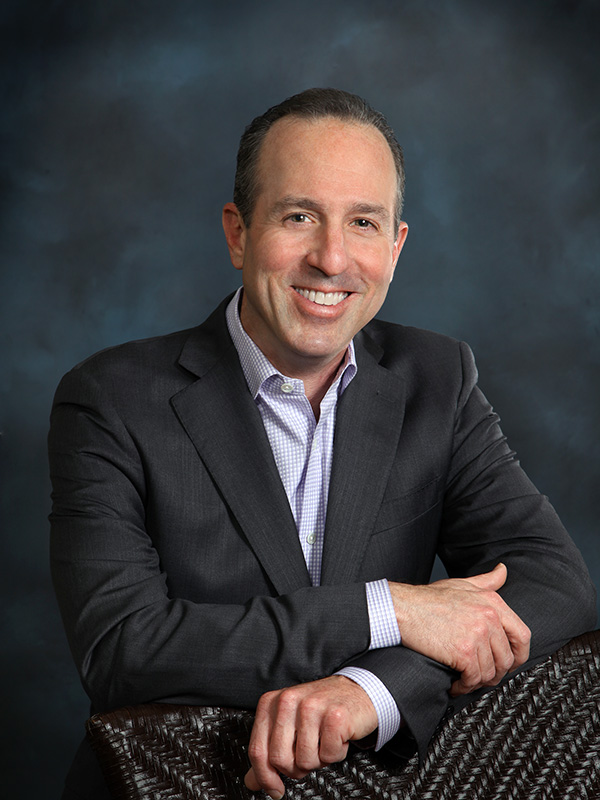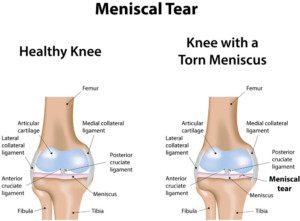Meniscus Tear Specialist

Are you experiencing pain and stiffness in your knee? If so, you may have torn your meniscus. A meniscus tear is among the most common knee injuries. A torn meniscus can occur in several different ways. Meniscus tear specialist, Dr. Mark Getelman provides diagnosis and both surgical and nonsurgical treatment options for patients in Los Angeles who have torn their meniscus. Contact Dr. Getelman’s team today!
Orthopedic Knee Specialist Treating Meniscus Tears
The meniscus is a wedge-shaped piece of cartilage. There are 2, medial and lateral that act as “shock absorbers” between the femur (thigh bone) and tibia (shin bone). It is semicircular or shaped like a “C,” supports the curved end of the thigh bone or femur and acts as a stabilizer for the knee joint. Dr. Mark Getelman, orthopedic knee specialist in the greater Los Angeles, California communities with offices in Van Nuys and Westlake Village, specializes in treating patients with meniscal injuries.
A meniscus tear is among the most common knee injuries. A torn meniscus can occur in several different ways. Many injuries happen during athletic activities when players squat and twist the knee or if a direct hit to the joint is sustained. Work related injuries can also occur and older patients may experience a meniscus tear from degeneration. Over time, cartilage weakens and becomes thin from normal wear and tear and aging. The weakened cartilage then becomes prone to a meniscus injury.
Meniscus Tear Symptoms
Common symptoms of a torn meniscus include pain, stiffness, swelling, limited range of motion and catching or locking of the knee. Patients may also feel a sensation of the knee “giving way.” When a meniscus injury occurs, some patients feel a tearing or popping sensation as the cartilage tears. However, many never recall a specific injury and rather report that the knee just became painful or swollen over time. In the majority of cases, patients can walk on the injured leg and perform everyday activities immediately following the injury. The knee will then become more stiff and swollen as the days progress.
Meniscus Tear Diagnosis
During the consultation and physical examination, Dr. Getelman will discuss symptoms and examine the injured knee for any swelling or changes in appearance compared to the uninjured knee. The McMurray test, a test often used to diagnosis a torn meniscus, will be performed. The McMurray test involves bending the knee and then rotating it to see if there is clicking or tenderness. This test can isolate the injured meniscus, causing a clicking sound if a tear is present. X-rays and an MRI will also be performed in many cases to rule out any other possible knee injuries and to confirm the diagnosis. MRI has been reported to be over 95% accurate at detecting most meniscal tears and remains the diagnostic test of choice.
Meniscus Tear Treatment
Dr. Getelman will determine the appropriate treatment plan after examining the type of meniscus tear, its precise location, its size and the level of associated injury.
A portion of the outer 1/3 of the meniscus, called the red zone, has a rich blood supply and injuries in the red zone have potential for healing. The remainder of the meniscus, called the white zone which is largely the inner 2/3, lacks a blood supply and therefore will typically not heal and often require surgery.
Non-Surgical
Treatment with RICE (rest, ice, compression and elevation) method and anti-inflammatory medications are typically recommended initially by Dr. Getelman for a meniscus injury not requiring a surgical repair. Physical therapy may be prescribed to help reduce the swelling, restore the range of motion and strengthen the knee.
Surgical
If the patient does not respond and continues to have pain, swelling or mechanical symptoms of locking catching or giving out then surgery may be required. In those cases, Dr. Getelman will recommend a minimally invasive, arthroscopic procedure called a meniscectomy. During this procedure, he will trim out the tear or suture the torn pieces of cartilage together. At your consultation, Dr Getelman will discuss which surgical option is best and will discuss the different rehabilitation programs for removal or meniscectomy as compared to meniscal repair with sutures.
For additional information on a meniscus injury or a meniscus tear, please contact the orthopedic office of Dr. Mark Getelman, knee specialist with offices in Van Nuys, Westlake Village, Thousand Oaks and Los Angeles, California.

